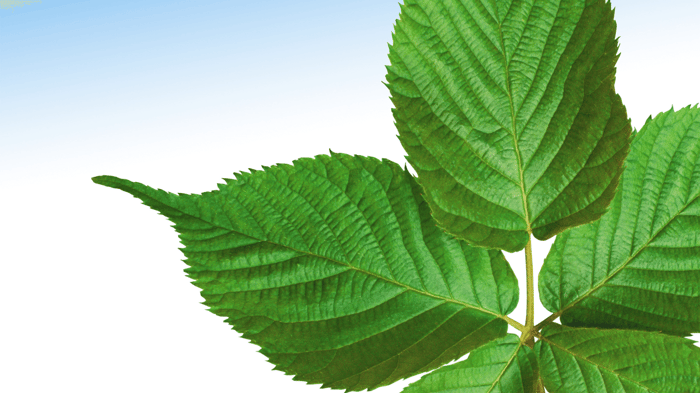Table of Contents
Estrogen is one of the body’s most powerful allies when it comes to vaginal health. It helps tissues stay soft, hydrated, and balanced—keeping discomfort, irritation, and dryness at bay. When estrogen levels naturally decline—especially during menopause or postpartum—the vaginal lining can lose moisture and elasticity, leading to sensations of dryness, itching, or pain during intimacy.
Because estrogen affects everything from blood flow to pH balance, its decline can disrupt how the body naturally produces lubrication. Recognizing these changes is key to understanding what’s happening—and how to restore comfort. Research on vaginal estrogen therapy and nonhormonal moisturizers shows that with the right care, comfort can be restored at any stage of life.
At Flower Power, we believe that feminine wellness should feel intuitive, not complicated. That’s why products like She Juicy are designed to support your body’s natural moisture—without hormones—helping you feel balanced, confident, and connected to yourself every day.
Key Takeaways
Estrogen maintains natural vaginal moisture and elasticity
Hormonal fluctuations can cause dryness or irritation
Hydrating care and hormone balance support lasting comfort
How Estrogen Supports Vaginal Moisture
Estrogen plays a key role in keeping vaginal tissue healthy and hydrated. It helps the vaginal wall stay thick and elastic, increases blood flow, and supports a balanced microbiome—all of which keep the vaginal environment moist and resilient.
Estrogen Receptors and Tissue Health
Inside the vaginal wall, estrogen receptors stimulate cell renewal and hydration. These receptors encourage glycogen production, which nourishes beneficial bacteria and keeps the vaginal lining smooth and flexible.
When estrogen declines, as it often does during menopause, tissues become thinner and more fragile. According to clinical research on vaginal estrogen, these changes contribute to dryness, irritation, and even a higher risk of infection. Supporting the vaginal wall through hydration and balanced care helps counteract these effects naturally.
Blood Flow and Hydration
Estrogen enhances circulation to the vaginal tissues, delivering oxygen and nutrients that help the body maintain natural lubrication. With lower estrogen levels, this flow decreases, which can lead to a drier, less elastic vaginal lining.
A study on vaginal aging found that estrogen directly supports moisture retention by maintaining collagen and elastin. These proteins help the tissue hold water and stay flexible—key for lasting comfort and hydration.
The Vaginal Microbiome
Estrogen also nurtures the vaginal microbiome—the ecosystem of good bacteria that protects against irritation and infection. By supporting Lactobacillus growth, estrogen helps maintain an acidic pH that locks in natural moisture and prevents harmful bacteria from thriving.
When estrogen drops, this balance shifts, making dryness more common. Products like She Juicy by Flower Power work to nourish the vaginal environment naturally, with plant-based ingredients that help maintain hydration and microbiome balance without disrupting pH.
Hormonal Changes Across Life Stages
Vaginal moisture changes throughout life, especially during major hormonal transitions such as menstruation, pregnancy, postpartum, and menopause. Estrogen and progesterone levels shift in rhythm, influencing how much natural lubrication your body produces.
During the Menstrual Cycle
Estrogen peaks before ovulation, increasing natural moisture and flexibility. After ovulation, progesterone rises and lubrication may decrease slightly. These fluctuations are part of the body’s natural cycle, and most women notice subtle differences throughout the month.
Pregnancy and Postpartum
During pregnancy, high estrogen levels often make the vaginal tissue more hydrated and elastic. However, after childbirth—especially while breastfeeding—estrogen temporarily drops, leading to short-term dryness. This is completely normal and usually resolves as hormone levels stabilize.
Menopause and Beyond
Menopause brings a steady decline in estrogen, which can cause vaginal dryness, tightness, and irritation. Clinically, this is known as genitourinary syndrome of menopause (GSM). Local estrogen therapy and nonhormonal moisturizers have been shown to restore hydration and comfort effectively.
Why Vaginal Dryness Happens
While hormonal changes are the most common cause, lifestyle and environmental factors also play a role. Smoking, stress, dehydration, or using harsh cleansers can all interfere with natural moisture. Certain medications—like antihistamines or antidepressants—may also reduce lubrication.
Understanding the root cause helps tailor the right care approach—whether through hydration, mindful habits, or natural products like She Juicy that support comfort from the outside in.
Restoring and Maintaining Vaginal Moisture Naturally
Hydration and hormonal balance work hand in hand. Here’s how to nurture both:
Drink plenty of water: Staying hydrated helps all mucous membranes, including the vaginal lining.
Eat nutrient-rich foods: Omega-3s, fruits, and leafy greens support collagen and moisture retention.
Move your body: Exercise improves blood flow and oxygen delivery to tissues.
Choose clean feminine care: Use pH-balanced, plant-based products that protect rather than strip moisture.
At Flower Power, we know that healthy moisture starts with care that respects your body’s rhythm. She Juicy is formulated with gentle botanical extracts and clean ingredients to help restore softness, elasticity, and balance—so you can feel comfortable in your own skin, every day.
Complementary Treatments
For those seeking additional relief, options like vaginal estrogen therapy or moisturizers can work alongside lifestyle changes. Local estrogen treatments are highly effective for restoring tissue hydration, while nonhormonal products like She Juicy offer gentle, hormone-free support for daily comfort.
Every woman’s body is unique. Whether you’re managing menopausal dryness, postpartum changes, or just looking to maintain balance, a personalized approach that combines hydration, hormone awareness, and clean self-care can make all the difference.
Final Thoughts
Estrogen’s role in vaginal moisture goes far beyond comfort—it’s about connection, confidence, and well-being. Understanding how your body changes empowers you to respond with care, not worry. Through gentle practices and clean products like She Juicy by Flower Power, you can restore harmony to your most intimate rhythms—naturally and beautifully.











